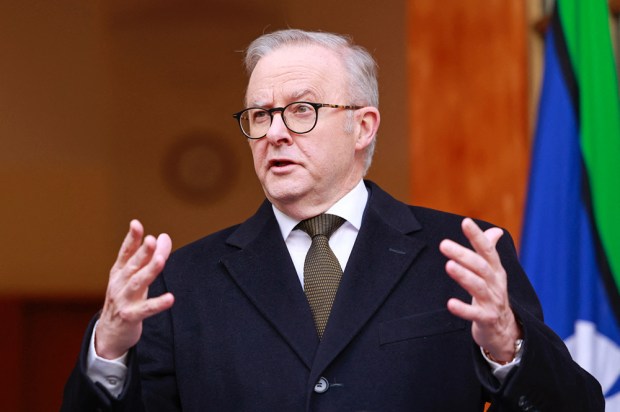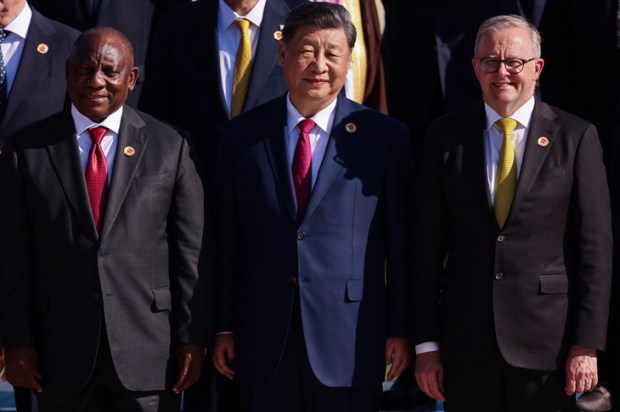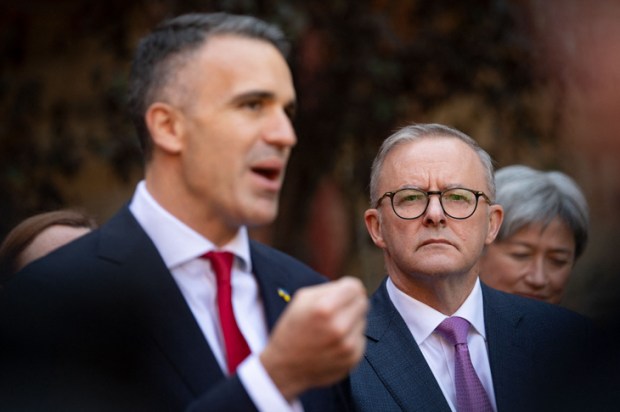Australia’s ‘sliding doors’ federal election is really two polls: one playing out in the suburbs and regions, where the hip-pocket nerve is raw and the cost-of-living crisis is acute, and another in the inner cities, where affluent voters can still afford luxury beliefs like net-zero emissions targets and renewable energy white elephants.
But there’s a twist: the Coalition is fighting some of its fiercest battles in Labor’s heartland. Just as the Teals conquered blue-ribbon Liberal seats in 2019, Labor’s true believers have become Howard’s battlers, Tony’s tradies, Menzies’ forgotten people.
To see this realignment in action, drive 45 minutes south-west from Sydney’s CBD to Werriwa – the seat of Labor icon Gough Whitlam and, later, one of its most trenchant critics, Mark Latham.
Labor has held Werriwa almost continuously since 1906, losing it only once – in 1931, during the depths of the Great Depression – when the party split over how to respond to the economic crisis. NSW Premier Jack Lang, mentor to a young Paul Keating, advocated repudiating British debt and ramping up government spending. Prime Minister James Scullin wavered, then rejected Lang’s plan, fracturing the party. Treasurer Joe Lyons walked out and formed the United Australia party, which swept to victory and later evolved into the Liberal party under Robert Menzies.
Labor reclaimed Werriwa in 1934 and has held it ever since. But in 2022, its primary vote dropped to just under 40 per cent. Even with the Greens, the combined ‘progressive’ vote was only 47 per cent. By contrast, Liberal candidate Sam Kayal, along with right-leaning parties – the Liberal Democrats, United Australia party, and One Nation –collectively secured 53 per cent. Labor held on by picking up at least 9 per cent of those right-leaning preferences.
A 2024 redistribution slashed Labor’s margin from 11.6 to 5.3 per cent, and polling now puts Werriwa on a knife-edge. A YouGov poll from February-March had Labor on 50.6 per cent two-party-preferred, and the Liberals on 49.4 – a statistical dead-heat within the 2-to-3 per cent margin of error.
Werriwa has been hammered by cost-of-living pressures. Over the last 25 years, its population has grown by more than 60,000, with new housing estates outstripping infrastructure. Traffic congestion is a daily purgatory. The latest census shows just 25 per cent of dwellings owned outright, 43 per cent mortgaged and 28 per cent rented. According to Four Corners, drawing on data from UNSW and Digital Finance Analytics, 93 per cent of renters are in rental stress, 83 per cent of mortgage holders in mortgage stress and 87 per cent of households are facing financial stress. Car dependency is high: 94 per cent of households own at least one vehicle, with an average of two per home. In 2016 – the last pre-COVID census – 66 per cent of workers drove to work, fewer than 7 per cent used public transport and just 3 per cent worked from home.
Opposition leader Peter Dutton’s pledges to cut the fuel excise and government spending to reduce inflation and drive down interest rates play well here – as does Kayal’s promise to upgrade 15th Avenue, the road linking Liverpool to the new Western Sydney International Airport. It’s a modern echo of Whitlam’s National Sewerage Program, which brought long-overdue infrastructure to the suburbs. As Neville Wran quipped, ‘It will be said of Gough Whitlam that he found the outer suburbs of Sydney, Melbourne and Brisbane unsewered and left them fully flushed.’ Former PM Tony Abbott received a warm welcome at Kayal’s campaign launch, with motorists honking in support.
The contrast with Abbott’s old seat of Warringah – a 50km drive that can take 90 minutes – could not be starker. Warringah is one of the most affluent seats in Australia. Teal independent Zali Steggall won it with 61 per cent two-party-preferred and 45 per cent of the primary vote, defeating Liberal Katherine Deves, who got only 33 per cent of the primary vote. Steggall’s new Liberal challenger, Jaimee Rogers, is campaigning on cost-of-living pressures – and Warringah is indeed among Australia’s least affordable rental markets – but her odds are far slimmer than Kayal’s.
Across the country, around 20 marginal or electorally volatile seats in the outer suburbs share Werriwa’s profile: surging populations, housing stress, inadequate infrastructure and a sense of abandonment by Labor’s university-educated elite, fixated on inner-city virtue-signalling and international grandstanding.
Some, like Parramatta, are on tight margins – Labor’s Andrew Charlton sits on just 3.7 per cent. Others, like Fowler, have already fallen to independents, with Dai Le on 3.2 per cent. Immigration Minister Tony Burke’s mass citizenship ceremonies are a desperate bid to win over new voters and claw back support in western Sydney.
Even in safe Labor seats like McMahon, held by Chris Bowen on a margin of 10.5 per cent, the ground is shifting. Compass polling found independent Matthew Camenzuli polling 41 per cent – double that of Bowen – no doubt due to Bowen’s ideological obsession with emissions over energy affordability.
Yet some of the country’s most marginal seats are Teal-held. Zoe Daniel in Goldstein has a margin of just 3.3 per cent and faces a rematch with former Liberal MP Tim Wilson. In Kooyong – once held by Menzies himself – Monique Ryan clings to just 2.2 per cent. Her campaign has been rocked by negative press, including footage of her husband stealing a rival’s poster and a cringeworthy interview following Allegra Spender’s failure to disclose paid influencer advertising.
State-level dynamics are biting too. In Victoria, Premier Jacinta Allan’s plummeting popularity evokes 1990, when public anger with state Labor cost federal Labor dearly. In WA, the proposed ‘Nature Positive’ environmental reforms have outraged the mining sector and even the state Labor government. Albanese shelved the bill until after the election – but the Greens are certain to demand it in any post-election deal.
Complicating matters further, Gaza has galvanised hardline Muslims to form Muslim Votes Matter and Australia’s Voice – backing Greens or independents over Labor in at least 32 seats. In Macnamara, Josh Burns faces a pincer from Greens and Liberals, and in Wills, Peter Khalil is under siege from the Greens.
As in Canada, Trump’s election has paradoxically benefited ‘progressives’ – and Labor is attempting to exploit this by making the absurd claim that Peter Dutton’s policies are a ‘cut and paste’ from Trump. But to win, Dutton must channel Abbott – his passion, energy and three-word slogans. Most importantly, as in 2010 and 2013, this election must be a referendum on the disastrous Albanese term – and the perils of re-electing him to a hung parliament, where radical Greens policies would hold sway.
Got something to add? Join the discussion and comment below.
You might disagree with half of it, but you’ll enjoy reading all of it. Try your first month for free, then just $2 a week for the remainder of your first year.













